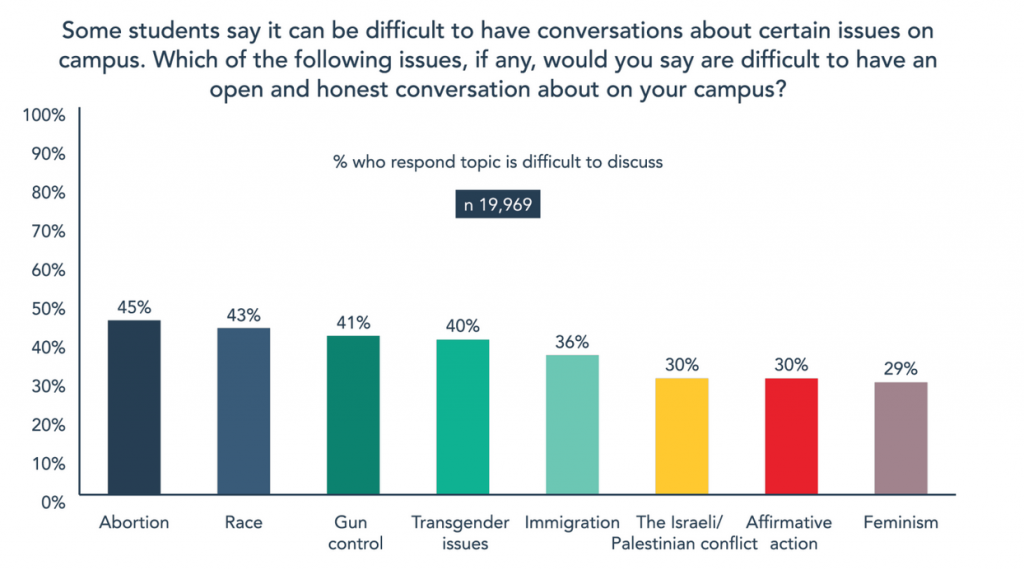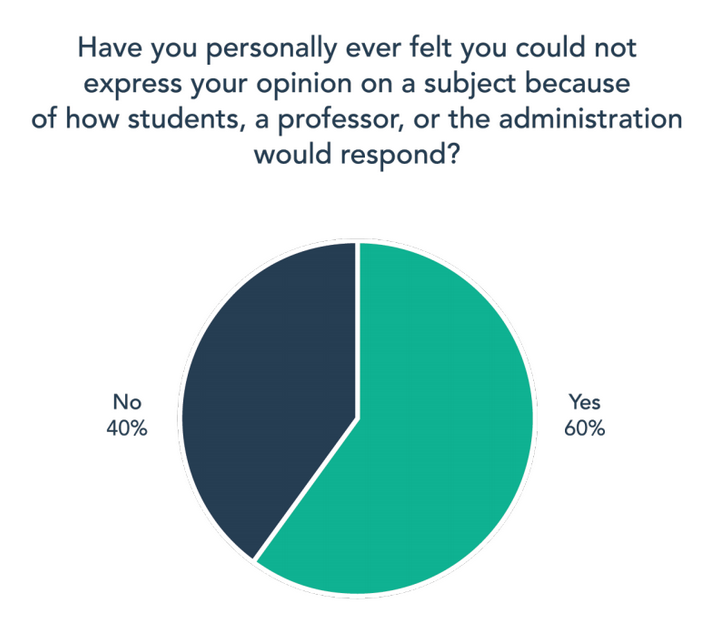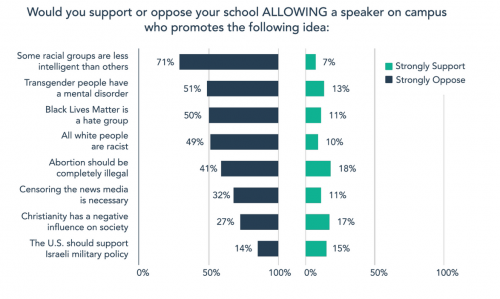The Foundation for Individual Rights in Education (FIRE) came out with the largest survey of students and campus life, showing the predictable divisions along class, political beliefs, and gender. However, overall, it painted a scenario that is mostly positive, and policy reforms can fix the drawbacks.
FIRE surveyed 20,000 students across 55 institutions. Female students reported less tolerance for speakers than male students, and LGBT students reported less tolerance for speakers than their straight counterparts. Likewise, African American students were less tolerant of dissenting views than Hispanic, Asian, and white students.
Students at Ivy League schools are more favorable toward using violence to stop speech. A total of 21 percent expressed some form of acceptance toward violence, with 1 percent saying it was always acceptable and 3 percent saying that violence is sometimes acceptable. Compared to that, 18 percent of students nationally thought violence was acceptable.
Liberals prefer violence more than conservative students, with atheists and African American students at around 25 percent approval, and LGBT students at around 27 percent approval.
Likewise, students who are self-declared “extreme-liberals” find violence always acceptable at a much higher rate than average liberals and conservatives.

This variation is also in line with socio-economic strata. For example, 10 percent of students at Columbia say violence is “always” or “sometimes” acceptable, and 23 percent say it is “rarely” acceptable. At Rutgers, 12 percent of students think violence is “always” or “sometimes” acceptable. That is more than double the national average. At Brigham Young University, however, only 2 percent of students said violence was sometimes acceptable. Absolutely no students at BYU said that it was “always acceptable.”
Among critical free speech issues, censorious tendencies seem to be rising, but these tendencies follow liberal social norms prevalent among the American elite and upper-middle class. For example, around 71 percent of students “strongly” oppose an advocate who would argue or speak on the racial difference in intelligence.
A majority of students would also oppose speech for anyone saying anything controversial like transgenderism is a mental disorder, or that Black Lives Matters is a hate group (51 percent and 50 percent, respectively.)
When it comes to self-censorship, about 60 percent of students self-censored at least once, in fear of how others would respond. Men and women are equal in their self-censorship (61 percent), but conservatives self-censor at a higher rate than liberals, for fear of causing offense or ostracism, which is around 72 percent for conservatives and around 55 percent for liberals.

Around 73 percent of self-described “strong Republicans” self-censor, compared to around 52 percent of self-declared “strong Democrats.” Only 15 percent of students can publicly disagree with a professor comfortably about a controversial topic, and only 11 percent of women feel comfortable doing it, compared to 19 percent of men.
The overall American trend isn’t much different from Canada, where there have been free speech problems. The rising tide against free speech is a cross-continental trend, as the Martin Center’s recent Blueprint for Reform briefs also suggested.
The University of Chicago came highest in the survey, gaining a green light rating and the top post for freedom of speech, with DePauw University being the worst. The Ivy League underperformed compared to national results, with Harvard earning a red light rating. Both UNC and Duke performed well, getting green lights in the final survey.
Sumantra Maitra is a doctoral scholar at the University of Nottingham, UK; he is a columnist for Providence Magazine and a senior contributor to The Federalist.

